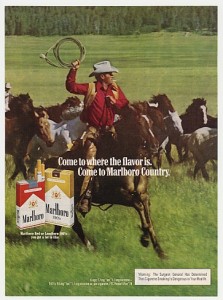Hanna Rosin’s 2010 Atlantic article, “The End Of Men,” concerns American males falling further and further behind women in education, employment, etc. The opening focuses on biologist Ronald Ericsson, who caused a media-stoked panic in the 1970s when he created a method that purportedly allows parents to choose the sex of their offspring. This development led some feminists to fear that women would be doomed in America. An excerpt:
“IN THE 1970s the biologist Ronald Ericsson came up with a way to separate sperm carrying the male-producing Y chromosome from those carrying the X. He sent the two kinds of sperm swimming down a glass tube through ever-thicker albumin barriers. The sperm with the X chromosome had a larger head and a longer tail, and so, he figured, they would get bogged down in the viscous liquid. The sperm with the Y chromosome were leaner and faster and could swim down to the bottom of the tube more efficiently. Ericsson had grown up on a ranch in South Dakota, where he’d developed an Old West, cowboy swagger. The process, he said, was like ‘cutting out cattle at the gate.’ The cattle left flailing behind the gate were of course the X’s, which seemed to please him. He would sometimes demonstrate the process using cartilage from a bull’s penis as a pointer.
In the late 1970s, Ericsson leased the method to clinics around the U.S., calling it the first scientifically proven method for choosing the sex of a child. Instead of a lab coat, he wore cowboy boots and a cowboy hat, and doled out his version of cowboy poetry. (People magazine once suggested a TV miniseries based on his life called Cowboy in the Lab.) The right prescription for life, he would say, was “breakfast at five-thirty, on the saddle by six, no room for Mr. Limp Wrist.’ In 1979, he loaned out his ranch as the backdrop for the iconic ‘Marlboro Country’ ads because he believed in the campaign’s central image—’a guy riding on his horse along the river, no bureaucrats, no lawyers,’ he recalled when I spoke to him this spring. ‘He’s the boss.’ (The photographers took some 6,500 pictures, a pictorial record of the frontier that Ericsson still takes great pride in.)
Feminists of the era did not take kindly to Ericsson and his Marlboro Man veneer. To them, the lab cowboy and his sperminator portended a dystopia of mass-produced boys. ‘You have to be concerned about the future of all women,’ Roberta Steinbacher, a nun-turned-social-psychologist, said in a 1984 People profile of Ericsson. ‘There’s no question that there exists a universal preference for sons.’ Steinbacher went on to complain about women becoming locked in as ‘second-class citizens’ while men continued to dominate positions of control and influence. ‘I think women have to ask themselves, ‘Where does this stop?’ she said. ‘A lot of us wouldn’t be here right now if these practices had been in effect years ago.’
Ericsson, now 74, laughed when I read him these quotes from his old antagonist. Seldom has it been so easy to prove a dire prediction wrong.” (Thanks to The Electric Typewriter.)


